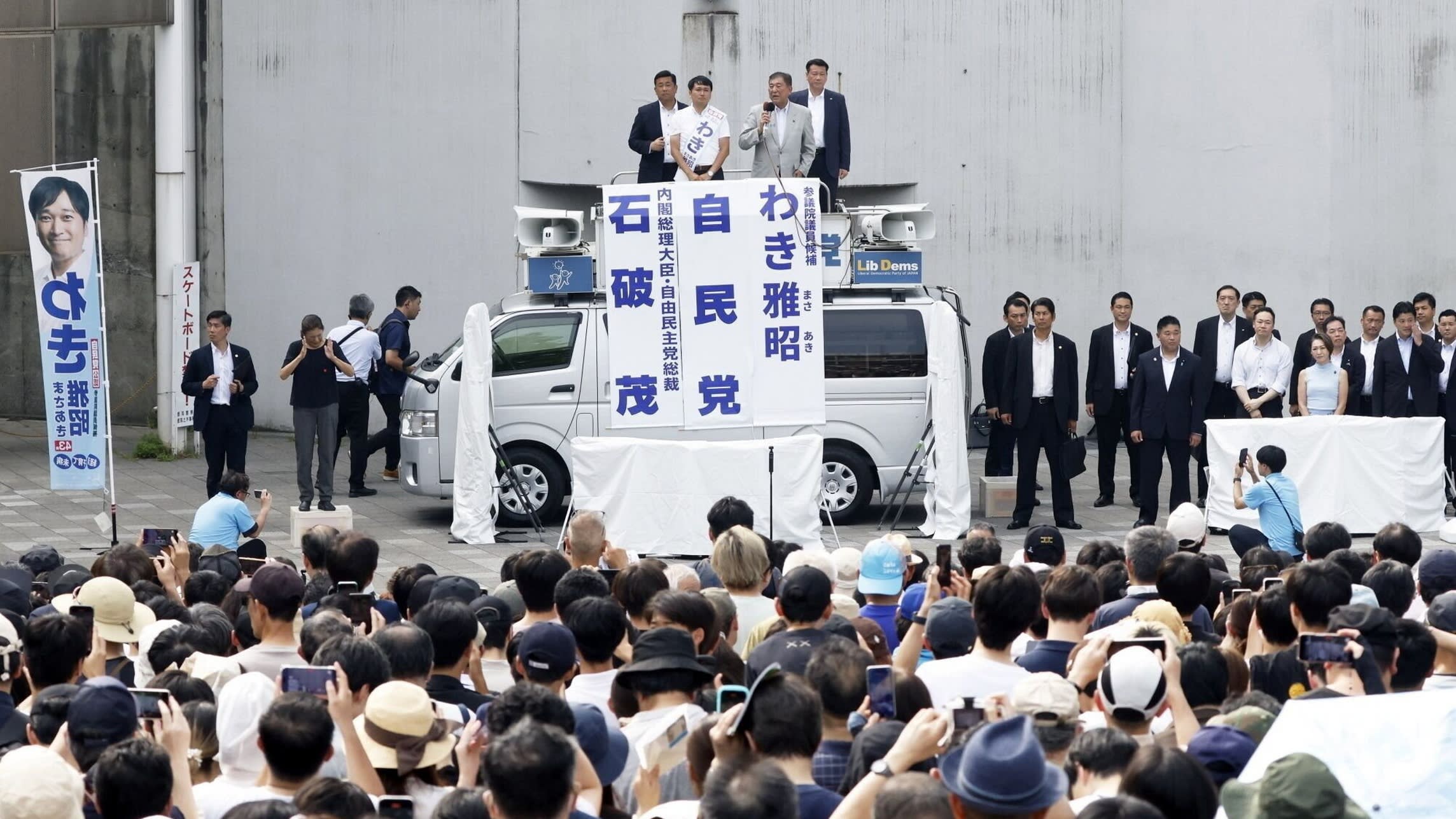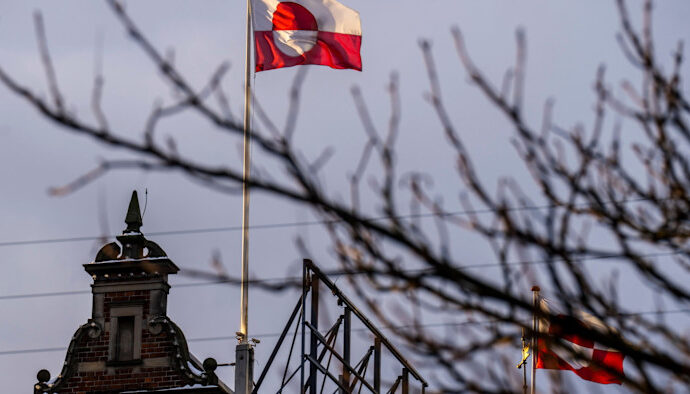
Unlock the Editor’s Digest for free
Roula Khalaf, Editor of the FT, selects her favourite stories in this weekly newsletter.
Given how long Japan had to battle to emerge from deflation, the nation’s politicians can perhaps be forgiven for struggling to respond appropriately to an election in which voters’ leading concern is rising prices. Yet opposition party promises to scrap or cut the 10 per cent consumption tax charged on most goods and services, and the ruling bloc’s rival offers of cash handouts — both headline pledges ahead of Sunday’s upper house election — are worrying signs of fiscal looseness ahead in a country that still has a mountain of debt.
Sunday’s voting for just over half the 248 seats in the Diet’s House of Councillors matters much more than usual for such elections. Polls suggest the long-governing coalition led by the Liberal Democratic party could lose its majority in the chamber, just as it did in last October’s election for the more powerful lower house. That would put huge pressure on Prime Minister Shigeru Ishiba to resign and might even end the LDP’s long run in government.
This is a crucial moment for the world’s fourth-largest economy. Tokyo is labouring to manage the tricky transition away from its deflation-era unconventional monetary policy, when its already anaemic economic growth is threatened by US President Donald Trump’s upending of the global trading order. Trump’s threat of a 25 per cent tariff on imports from Japan has also deepened worries about the health of the alliance between Washington and Tokyo, a bulwark of regional stability since the 1950s.
Opposition parties argue that cutting or scrapping the consumption tax would support growth and ease strains on households after three years of consumer price inflation above the Bank of Japan’s 2 per cent target. They can cite a stabilising fiscal situation: Japan’s gross debt still amounts to a startling 235 per cent of GDP, but inflation is eroding the burden even as it boosts tax revenues.
Ishiba has rejected the calls for a tax cut, suggesting in May that Japan’s “extremely poor” finances were in even worse shape than those of Greece before its 2009 debt crisis. But Tokyo is far less vulnerable than Greece was to international sentiment; at the end of last year foreign investors held only 12 per cent of outstanding government bonds, while an extraordinary 46 per cent was in the hands of the BoJ. The prime minister’s portrayal of himself as a pillar of fiscal rectitude is also undermined by the LDP’s own campaign pledge to give every citizen a handout of ¥20,000 ($134) — double that for children and those on low incomes — at a cost estimated at ¥3.5tn.
Still, Japan must tread carefully to retain confidence and keep its borrowing affordable. Worries about political uncertainty and the populist campaign pledges this week sent yields on 10-year Japanese government bonds to their highest level since 2008. The stability of long-term bond prices has been questioned since 30-year JGB yields lurched higher in May.
Voters are upset by the failure of incomes to keep pace with rising living costs. But tax cuts or handouts will do nothing to stem inflation caused by yen weakness that makes imports more expensive. They may even fuel it by stimulating demand. Nor will they do anything to tackle Japan’s bigger challenges, such as its slow-burn demographic crisis, the rise of an assertive China, the unreliability of its US ally and its reliance on imported fossil fuels.
The failure of the LDP and leading opposition parties to offer credible policies to address those challenges is dangerous: witness the emergence as a political force in this election of the anti-foreigner, anti-globalist Sanseito party. Whoever comes out top after Sunday’s poll must look beyond quick fixes and populist giveaways.


